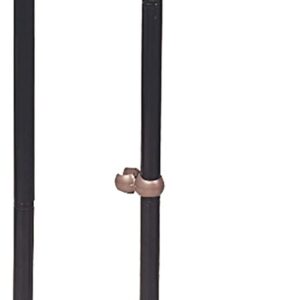
Cats have been our furry companions for thousands of years, their independent and enigmatic nature making them one of the most beloved pets worldwide. In recent years, as the awareness of animal rights and environmental concerns has grown, so too has the interest in vegan diets for our pets, including cats. This raises a crucial question: Is it really safe to feed your cat a vegan diet?
In this blog post, we’ll delve deep into the world of feline nutrition, the arguments for and against vegan diets for cats, and provide guidance for concerned pet owners. Before making any dietary changes for your feline friend, it’s essential to understand the biological, ethical, and practical implications of a vegan diet for cats.
Understanding a Cat’s Dietary Needs
Cats are obligate carnivores, meaning their bodies have evolved to rely on animal-based foods to meet their nutritional requirements. Unlike omnivores like dogs and humans, cats have specific dietary needs that are challenging to meet through plant-based foods alone.
Key Nutritional Requirements for Cats
- Protein: Cats need high-quality animal-based protein to obtain essential amino acids like taurine, arginine, and cysteine. These amino acids are crucial for maintaining muscle mass, supporting heart health, and promoting proper brain function.
- Taurine: Taurine is an amino acid that is essential for cats but not found in plant-based sources. A deficiency in taurine can lead to severe health problems, including heart disease and vision impairment.
- Vitamin A: Cats require preformed vitamin A (retinol) found in animal tissues because their bodies cannot efficiently convert beta-carotene from plant sources into the active form of vitamin A.
- Arachidonic Acid: This fatty acid, primarily found in animal fats, is crucial for cats’ skin health, reproduction, and overall well-being.
- Vitamin B12: Cats need a direct source of vitamin B12, which is abundant in animal-based foods. A deficiency can lead to anemia, neurological problems, and gastrointestinal issues.
- Proper Balance of Nutrients: Cats need a balanced ratio of macronutrients (proteins, fats, and carbohydrates) to thrive. Their dietary needs differ significantly from humans and even dogs.
Challenges of a Vegan Diet for Cats
Feeding a vegan diet to cats presents several challenges and risks due to their unique nutritional requirements:
- Protein Quality: Plant-based protein sources like legumes and grains do not provide the complete amino acid profile that cats need, potentially leading to protein deficiencies.
- Taurine Deficiency: Taurine is not found in plant-based foods in sufficient quantities. A lack of taurine can result in severe health issues, including blindness and heart disease.
- Vitamin A and B12 Deficiencies: Cats cannot efficiently convert plant-based precursors of these vitamins into active forms. Deficiencies can lead to various health problems.
- Insufficient Fats: Cats require animal fats rich in arachidonic acid for healthy skin, coat, and overall health.
- Carbohydrates: Cats are not adapted to digest carbohydrates well, and excessive amounts can lead to obesity and diabetes.

The Ethical Dilemma
One of the primary motivations for feeding cats a vegan diet is the ethical concern over the treatment of animals in the pet food industry. Traditional pet food often contains byproducts from factory farming, which many consider inhumane and unsustainable. Vegan pet owners may choose plant-based diets for their cats as a way to align their pet care with their ethical values.
Ethical Concerns with Traditional Cat Food
- Animal Farming Practices: Conventional cat food often contains meat from factory-farmed animals, which can involve inhumane treatment, overuse of antibiotics, and environmental degradation.
- Sustainability: The meat industry is a significant contributor to greenhouse gas emissions and deforestation. Some pet owners opt for vegan diets to reduce their pets’ carbon footprint.
- Wildlife Conservation: Outdoor cats can contribute to the decline of local wildlife populations. Reducing or eliminating animal-based diets for cats might help mitigate this issue.
While the ethical concerns are valid, it’s essential to balance them with the well-being of your cat. Advocates for vegan cat diets argue that it’s possible to meet cats’ nutritional needs without using animal-based ingredients, but the scientific consensus remains cautious.
The Controversy Surrounding Vegan Diets for Cats
The question of whether cats can thrive on vegan diets has sparked considerable debate within the veterinary and animal welfare communities. Proponents argue that with careful planning and supplementation, vegan diets can be safe and nutritionally complete for cats. Detractors, however, emphasize the potential health risks and contend that obligate carnivores should not be fed plant-based diets.
Arguments in Favor of Vegan Diets for Cats
- Vegan Cat Food Options: There are now commercially available vegan cat food options formulated to meet feline nutritional requirements. These foods often contain synthetic versions of essential nutrients like taurine and vitamin B12.
- Reduced Environmental Impact: Vegan cat diets have a smaller environmental footprint, aligning with the sustainability goals of many pet owners.
- Allergies and Health Benefits: Some cats may have allergies to animal proteins, and a vegan diet can alleviate these issues. Additionally, proponents claim that vegan diets can lead to a healthier weight and lower risk of certain diseases in cats.
Arguments Against Vegan Diets for Cats
- Biological Incompatibility: Cats are obligate carnivores, and their physiology is adapted to metabolize animal-based nutrients efficiently. Plant-based diets may not provide essential nutrients in the required forms or quantities.
- Health Risks: Feeding cats a vegan diet can lead to taurine, vitamin A, and vitamin B12 deficiencies, which can result in severe health problems and even death.
- Lack of Long-Term Studies: There is limited scientific research on the long-term effects of vegan diets for cats. Most studies focus on short-term outcomes, making it challenging to assess the potential risks and benefits.
Vegan Diet Formulation for Cats
For those committed to pursuing a vegan diet for their cats, careful planning and consideration are essential. Formulating a nutritionally complete vegan cat diet requires a deep understanding of feline nutrition and the use of appropriate supplements.
Key Considerations for Vegan Cat Diets
- Protein Sources: Vegan cat foods typically use plant-based protein sources such as peas, lentils, and chickpeas. These must be supplemented with synthetic taurine and other essential amino acids.
- Taurine Supplementation: Taurine is a non-negotiable nutrient for cats. It must be added to the diet in sufficient quantities to prevent deficiency-related health issues.
- Vitamin A and B12: Synthetic forms of these vitamins should be included in the diet to prevent deficiencies.
- Fatty Acids: While cats require arachidonic acid from animal fats, some plant-based oils can provide essential fatty acids like linoleic acid. Careful selection and balancing of fats are crucial.
- Digestibility: Cats have a shorter digestive tract than omnivores, making them less efficient at breaking down plant materials. High-quality and easily digestible ingredients are essential.
- Regular Veterinary Checkups: Cats on vegan diets should undergo regular checkups to monitor their health and nutritional status. Blood tests can help identify deficiencies early.
Vegan Cats: Success Stories and Concerns
As the debate around vegan diets for cats rages on, there are anecdotal accounts of cats that have thrived on well-planned vegan diets. However, these success stories should be approached with caution.
Success Stories
- Bramble: Bramble, a vegan Border Collie, lived to be 27 years old, an exceptional age for her breed. Her diet consisted mainly of rice, beans, and vegetables, with supplements.
- Cat Named Cuddly: A cat named Cuddly made headlines for being a healthy, vegan feline. His owner carefully selected a commercial vegan cat food that met his nutritional needs.
Concerns and Criticisms
- Risk of Deficiency: The biggest concern with vegan cat diets is the potential for nutrient deficiencies, which can have severe health consequences.
- Sample Size: Success stories often represent a tiny fraction of the cat population, making it difficult to draw broad conclusions about the safety and efficacy of vegan diets.
- Supplementation Complexity: Formulating a vegan diet for cats is complex and requires precise nutrient supplementation, which may not be practical for all pet owners.
- Ethical Dilemmas: While vegan diets for cats may align with certain ethical values, they also raise ethical questions about imposing dietary restrictions on obligate carnivores.
Also Read Unveiling the Secrets to Selecting the Ideal Cat for Your Household
Conclusion: Making Informed Choices
Feeding your cat a vegan diet is a decision that should not be taken lightly. While ethical concerns about the treatment of animals and the environmental impact of meat production are valid, it’s crucial to prioritize the health and well-being of your feline companion.
Before transitioning your cat to a vegan diet, consult with a veterinarian experienced in feline nutrition. They can assess your cat’s individual needs, provide guidance on suitable commercial vegan cat foods, and monitor your cat’s health throughout the transition.
Ultimately, the safety of feeding your cat a vegan diet remains a topic of debate within the veterinary community. Until more extensive research is conducted, the best approach is to make informed decisions that prioritize your cat’s health while aligning with your ethical values.
Remember that there is no one-size-fits-all answer, and each cat is unique. Whether you choose to pursue a vegan diet for your cat or opt for a conventional meat-based diet, the well-being and happiness of your feline friend should always be the top priority.
Disclaimer: This article may contain affiliate links to products. All product details reflect the price and availability at the time of publication. We may receive a commission for purchases made through these links.



